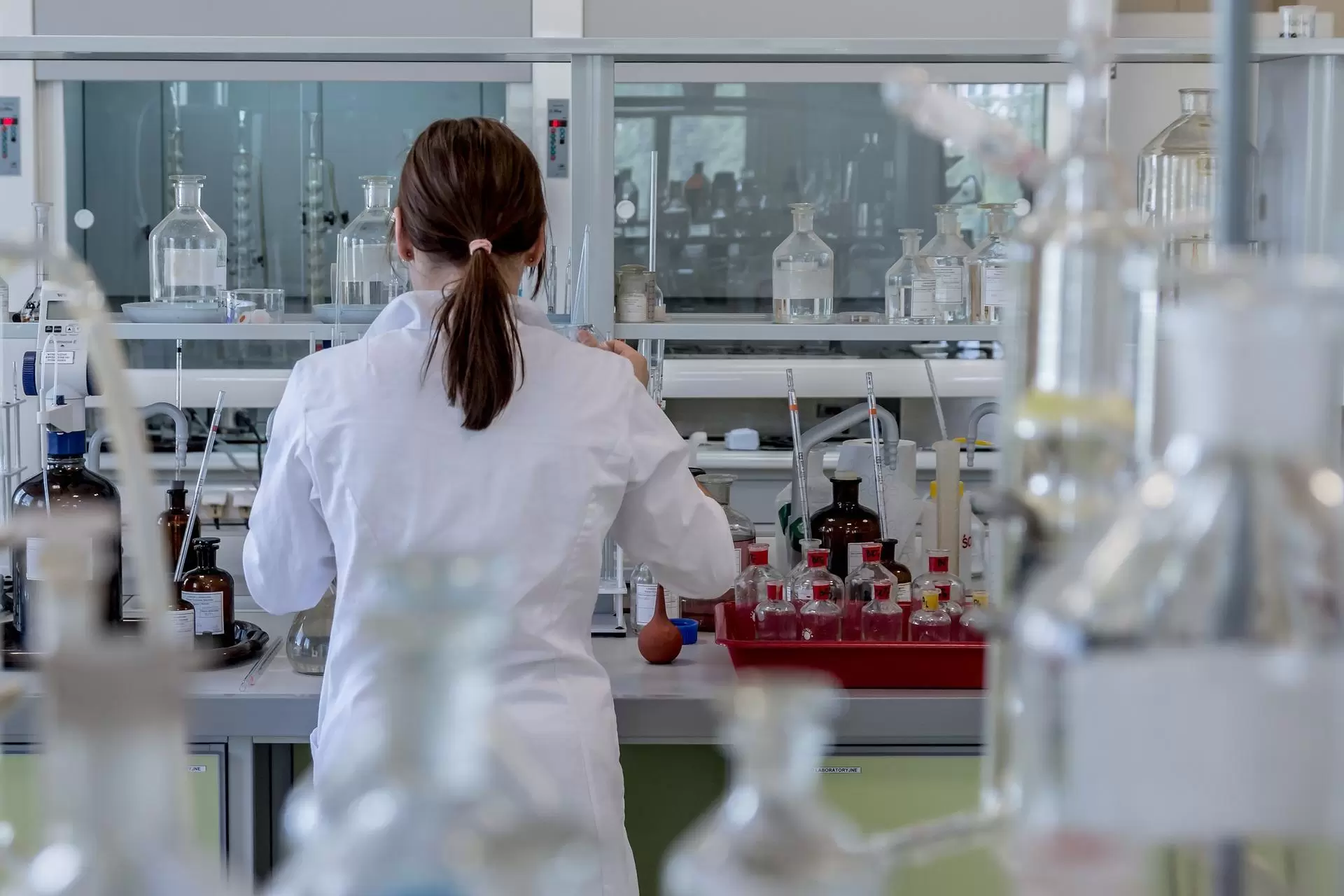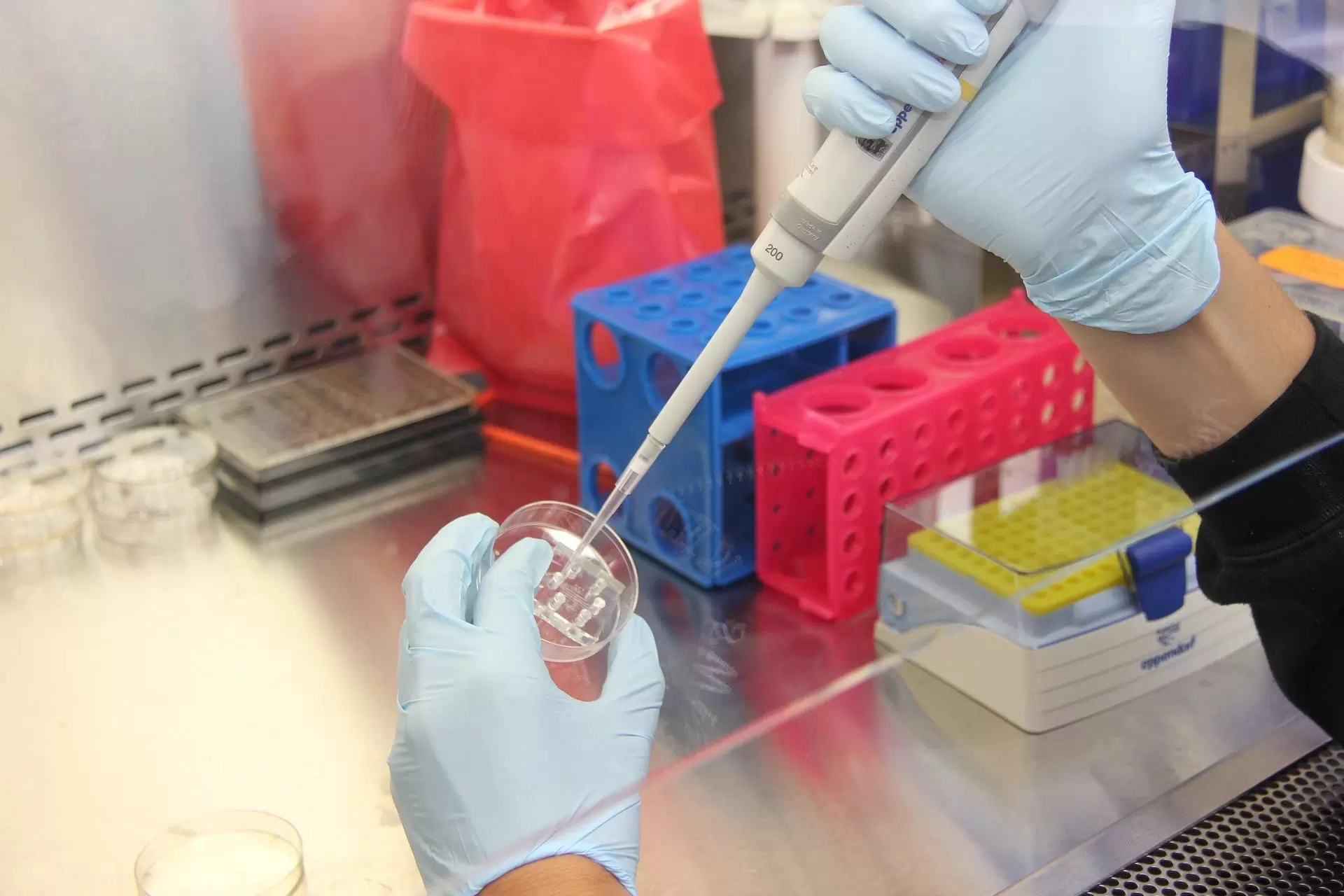Research
The Benson Lab is focused on developing new approaches to use mass-spectrometry-based metabolomic and affinity-based proteomic data from blood and other tissue samples obtained from large human population studies and smaller perturbational studies to identify novel pathways in early cardiometabolic disease. The lab uses basic molecular biology, cell biology, and animal model systems to experimentally validate and study these new findings.
N-acyl-amino acids in cardiometabolic disease
 "N-acyl amino acids" are a class of unusual fatty-acid derived molecules that consist of a fatty acid conjugated to an amino acid. These molecules have been detected for years in a range of species, from bacteria to fruit flies to mammals. We have recently discovered that plasma levels of specific N-acyl amino acids — as well as plasma levels of the enzymes that synthesize and break down these molecules — are strongly and differentially associated with obesity, diabetes, coronary heart disease, and other cardiometabolic diseases in humans. We are now using data from human genomics, proteomics, and metabolomics profiling studies to guide investigations at the bench and identify the functional role of these molecules in cardiometabolic disease.
"N-acyl amino acids" are a class of unusual fatty-acid derived molecules that consist of a fatty acid conjugated to an amino acid. These molecules have been detected for years in a range of species, from bacteria to fruit flies to mammals. We have recently discovered that plasma levels of specific N-acyl amino acids — as well as plasma levels of the enzymes that synthesize and break down these molecules — are strongly and differentially associated with obesity, diabetes, coronary heart disease, and other cardiometabolic diseases in humans. We are now using data from human genomics, proteomics, and metabolomics profiling studies to guide investigations at the bench and identify the functional role of these molecules in cardiometabolic disease.
Multi-omics data for mechanistic insight
 We are developing strategies to integrate metabolomics, proteomics, and genomics data from large-scale population studies for pathway discovery in cardiometabolic disease. The integration of these datasets offers the opportunity to connect circulating proteins and metabolites as pathway partners in human physiology. For example, metabolomics techniques can measure thyroxine, while proteomics techniques can measure the transporter thyroxine binding globulin that regulates circulating levels of this metabolite in the thyroid hormone signaling pathway. We are now developing approaches to systematically combine metabolomics and proteomics data to identify insights into new transporter-ligand, enzyme-substrate, and other protein-metabolite pairs that can be used by pathway discovery in human cardiometabolic disease. A major goal is to make all of these data publicly available as a resource to the scientific community.
We are developing strategies to integrate metabolomics, proteomics, and genomics data from large-scale population studies for pathway discovery in cardiometabolic disease. The integration of these datasets offers the opportunity to connect circulating proteins and metabolites as pathway partners in human physiology. For example, metabolomics techniques can measure thyroxine, while proteomics techniques can measure the transporter thyroxine binding globulin that regulates circulating levels of this metabolite in the thyroid hormone signaling pathway. We are now developing approaches to systematically combine metabolomics and proteomics data to identify insights into new transporter-ligand, enzyme-substrate, and other protein-metabolite pairs that can be used by pathway discovery in human cardiometabolic disease. A major goal is to make all of these data publicly available as a resource to the scientific community.
Proteomics and metabolomics profiling in population studies
 Recent technological advances are beginning to provide the first glimpses of how proteomics and metabolomics profiling may move beyond the early stages of development and be applied to large-scale, population-based studies for biomarker and pathway discovery. We are fortunate to work in close collaboration with several multi-disciplinary groups from large population studies, as well as smaller perturbational exercise, diet, and drug studies to develop and assess the technical strengths and weaknesses of state-of-the-art affinity based proteomic and mass-spectrometry-based metabolomic platforms and how these data can best be used for biomarker and biological insight. We are also fortunate to work with and be located immediately adjacent to the state-of-the-art proteomics and metabolomics center here at the BIDMC CardioVascular Institute.
Recent technological advances are beginning to provide the first glimpses of how proteomics and metabolomics profiling may move beyond the early stages of development and be applied to large-scale, population-based studies for biomarker and pathway discovery. We are fortunate to work in close collaboration with several multi-disciplinary groups from large population studies, as well as smaller perturbational exercise, diet, and drug studies to develop and assess the technical strengths and weaknesses of state-of-the-art affinity based proteomic and mass-spectrometry-based metabolomic platforms and how these data can best be used for biomarker and biological insight. We are also fortunate to work with and be located immediately adjacent to the state-of-the-art proteomics and metabolomics center here at the BIDMC CardioVascular Institute.
